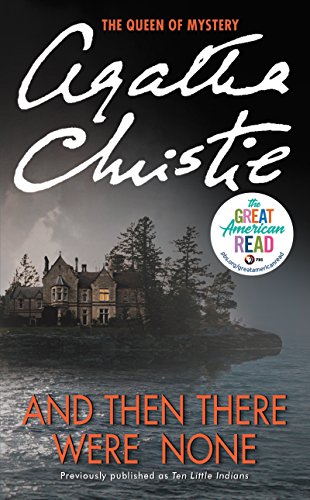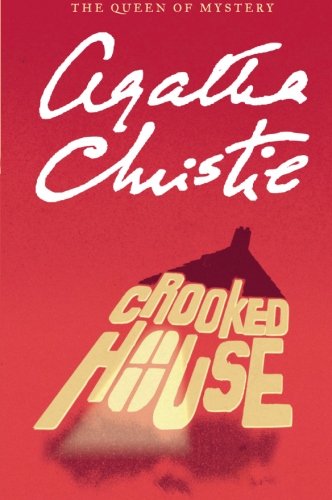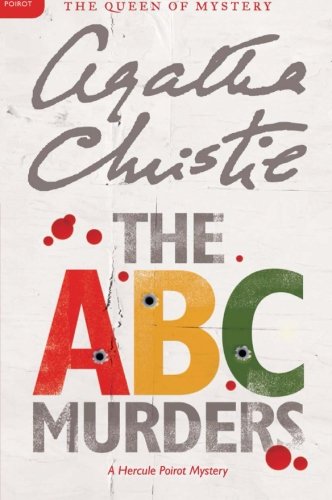The Best and Worst of Agatha Christie, Queen of Mystery
/Agatha Christie is actually a dame, but Queen works too.
You’re probably familiar with the name Agatha Christie, even if you’ve never read any of her work. She’s been deemed “The Queen of Mystery” in honor of her prolific career as a mystery writer, which spanned fifty-five long years. In fact, Christie is the most widely published author of all time, after Shakespeare and the bible.
For a reason long forgotten by now, I made it my goal to read all of Agatha Christie’s mysteries. After two years, sixty-six novels, and fourteen short story collections, I’ve finally done it. Now it’s time for me to share what I’ve learned.
I’ve compiled a list of Christie’s work (plays excluded, though that may come next) breaking down what you cannot miss, what to read after that, and what to stay away from. Christie specialized in puzzle mysteries, meaning mysteries that reader can solve along with the detective. That means it’s time to put your detective skills to the test as you read one of the most distinguished mystery writers of all time.
(This post contains affiliate links in which we receive a commission for the things you buy at no additional cost to you.)
If you’re only going to read a few…
Let’s face it—not all of you are like me. There are tons of authors out there who you want to read, and if you are going to hone in on one you want the best of the best. Well, here they are. Most of these won't be a surprise to you because they are also Christie’s most famous. But, remember, they are famous for a reason.
1. And Then There Were None
Before Halloween, before Friday the 13th, before any other slasher film, there was And Then There Were None. As Christie’s best-selling novel, indeed as the best-selling mystery novel of all time, it has inspired works of mystery and suspense ever since its first publication. Even in its controversy, the novel highlights a particular time and place, bringing up vital questions of how we view others, who is worthy of condemnation, and who has the right to serve justice.
2. Murder on the Orient Express
Christie has a knack for breaking all of the rules of detective fiction. In Murder on the Orient Express, she masters the craft. A lavish train travels the European continent carrying an unlikely group of people, each with their own secret. A man by the name of Ratchett soon winds up the victim of a gory murder, and the investigation only brings up confusion. Enter Hercule Poirot, Christie’s most famous detective. This is not his first case, nor his last, but it is his most famous, and perhaps his most puzzling.
3. The Murder of Roger Ackroyd
A critical favorite, The Murder of Roger Ackroyd once again paved the way for the mystery and suspense genre and put Christie on the map. In the fictional town of King’s Abbot, a butler places a phone call to the local doctor to reveal that a murder has occurred. When the doctor arrives on the scene, the butler claims to have made no such call—yet the murder has occurred. Quirky Belgian detective Hercule Poirot is roused from peaceful retirement to solve the puzzling case of Roger Ackroyd.
4. Death on the Nile
Death on the Nile may not be Christie’s most remembered Poirot novel, but it is one of the best examples of how Christie can capture a setting. Married to an archeologist, Christie had the privilege of traveling the world as she wrote. Her love of faraway places shines through many of her novels, especially this one. Poirot boards a cruise traveling up the Nile in Egypt, only to again be caught in an emotionally-charged murder investigation.
5. Crooked House
Christie’s novel Crooked House revolves around an interdependent family shaken by the murder of its patriarch. In an indeed crooked house full of crooked people, accusations fly and no one is to be trusted. This is a one-off novel—no Poirot or Marple to save the day—and it was one of Christie’s personal favorites. An excellent character study, it is one of few that actually gave me chills.
If You’re Craving More…
Maybe you’ve read our top five already—but now you’ve got a hankering for more. Here’s where we suggest you go from there. This was no easy list to make. While Christie’s masterpieces are generally agreed upon, her lesser known works are constantly debated. I chose the books that I found most enjoyable or couldn’t stop thinking about.
1. The Moving Finger
In The Moving Finger, a brother and sister receive an anonymous letter accusing them of being lovers. The same poison pen who wrote their letter begins to terrorize other villagers until one of them commits suicide. Or is it murder? The mystery unfolds in a surprisingly funny and enjoyable way until the deus ex machina, in the form of old Miss Marple, unexpectedly saves the day.
Side Note: While I think Miss Marple is one of the coolest detective characters ever written, I feel that Christie’s Poirot novels are generally better written and executed. That’s why this is the only Marple novel on this list, and it hardly counts, as she only appears at the end. For those wanting to really see this sharp-witted spinster sleuth in action, try Pocket Full of Rye or Murder at the Vicarage.
2. THE ABC Murders
What do Poirot and a serial killer have in common? Devotion to method. In The ABC Murders, Poirot puts his “little grey cells” to the test in hunting down a serial killer who uses an ABC Rail Guide to select victims. This is one of Christie’s most thrilling plots and, published in 1936, gives an inside look into how people understood serial killers long before the research and profiling we have today.
3. Peril at End House
Have you ever had a near death experience? In Peril at End House, one young woman has several—each right after the other. When Poirot, who happens to be on holiday in the area, discovers a bullet hole in her hat, he starts to believe someone wants her dead. He sets about protecting her, but the case is more complex than first meets the eye.
4. The Secret Adversary
You cannot call yourself a Christie fan without acquainting yourself with the amateur spy duo Tommy and Tuppence. In this, the first of their exploits, two broke friends decide to put an ad in the paper: “Two young adventurers for hire. Willing to do anything, go anywhere. Pay must be good.” As you may expect, they get a reply that is more than they bargained for. This is only Christie’s second published novel and it features some of her most charming characters.
5. Lord Edgeware Dies
If you are a fan of mistaken identity plots, this one is for you. In Lord Edgware Dies, a well-known actress seeks help from Poirot to get a divorce from her husband. Poirot’s services are soon deemed unnecessary, however, when the husband is found dead. The actress then becomes the number one suspect for the murder, with only one problem: she has an air-tight alibi. This armchair mystery, with its slow build and countless red herrings, is one of the best examples of Christie’s genius.
If You Prefer Short Stories…
Christie wrote many, many short stories. While most of them don’t live up to her full length novels, there are a handful that have been lauded as some of her best work and should definitely be added to your list.
1. Witness to the Prosecution and Other Stories
This collection is made up of typical Christie short stories, with the inclusion of her most famous one: Witness to the Prosecution. The title story is a courtroom thriller about a solicitor who represents a client accused of murdering an old lady. Enter the client’s wife, said witness to the prosecution, and… I won’t spoil it for you. Another story in the collection, Philomel Cottage, shows the supernatural side of Christie. It is a true ghost story, and creepy to boot.
2. Partners in Crime
As I have already stated, Tommy and Tuppence are some of my favorite characters. They’re hilarious, spunky, and have great chemistry. This time, they decide to open their own detective agency, advertising “any case solved in 24 hours.” It’s best if you are familiar with “The Golden Age” of detective mysteries, because the inside jokes are priceless.
3. The Thirteen problems
The Thirteen Problems, a selection of Miss Marple mysteries, revolves around a group of six people who gather at Miss Marple’s house to discuss unsolved crimes. Knitting by the fire, Miss Marple shows off her particular acumen for crime-solving. There are a variety of cases involving: a bloodstain that disappears, a blue geranium seen as an omen, a secret message reading “a heap of fish”, and even more oddities.
If you don’t want your time wasted…
Here’s something that should be obvious about Christie, a woman who pumped out a novel per year for over fifty years: not all of her books are winners. Sure, in the haystack of Christie’s work, there are several bright, shining needles. Also there’s a lot of ordinary hay. And even the occasional clump of dirt. Dedicated Christie fans are willing to look over much in favor of the author herself—well, not me. If you happen to be rifling through your library’s shelves and picking out Christie’s books at random, I suggest you at least stay away from these five.
1. Passenger to Frankfurt
Crash and burn. Passenger to Frankfurt is boring with too many characters that you don’t care about. Plus, it is full of fascist youth-centered ideology that goes on for pages and pages, which I think you are supposed to disagree with but, honestly, it is hard to tell. The plot is practically non-existent but loosely follows a world-domination scheme that is, sadly, melodramatic and ridiculous. Oh, and there is a conspiracy theory about Hitler in there that comes out of left field.
2. TAKEN AT THE FLOOD
As you may soon find, many of Christie’s books have their share of racist, sexist, ageist—you name it—ideology, but this one got me riled. The mystery itself in Taken at the Flood is fairly good and unexpected, but it’s hard to like when the masochistic ingenue keeps making horrible remarks. (“When you caught hold of me by the throat and said if I wasn’t for you, no one should have me—well—I knew then that I was your woman!”) Add in a few remarks about how “girls ask for it” and how Irish eyes look like they are “smeared on with a smutty finger” and you’ve got a truly cringe-worthy book.
3. The Man in the Brown Suit
The Man in the Brown Suit is another potentially captivating mystery ruined by ideology. The ingenue falls in love with a violent guy after meeting him once—believing he is a murderer. Then she fantasizes about him hurting her and says that women are weak and men are strong, which is why women are attracted to them. Then the novel ends with her blaming the victim for being the kind of woman who deserves to die for leading a guy on. To top it off, she forgives the villain's murderous ways because she finds his personality charming, even though he tried to kill her multiple times. Add in several shudder-inducing comments about native Africans and you’ll wonder why you read this book in the first place.
4. Nemesis
“Girls are far more ready to be raped nowadays than they used to be...” If you want to burn—I mean, read—a book in which this is not only stated but universally agreed with, then this book is for you. In Nemesis, Christie’s commentary on young women, nature versus nurture, and love comes in long, frequent paragraphs spoken by the entire cast of characters. They repeatedly reiterate the same backwards ideas and all somehow agree with one another. The irony hits home when you realize Nemesis is the Greek god who punishes arrogance.
5. Ordeal by Innocence
It probably will surprise you when I tell you to skip one of Christie’s self-proclaimed favorites, Ordeal by Innocence. It probably won’t surprise you, however, when I tell you why: heavy-handed commentary. This time, in the midst of trying to solve the murder, you get to hear all about Christie’s views on nature versus nurture. And every character agrees—it’s nature. This is somewhat grating when the woman murdered has adopted five children. But don’t worry—she’s not their REAL mother. They can’t REALLY love her like one. Yikes.






























Escape rooms are one of our favorite date nights out, and now they are also one of our favorite date nights in! One part board game, one part escape room.